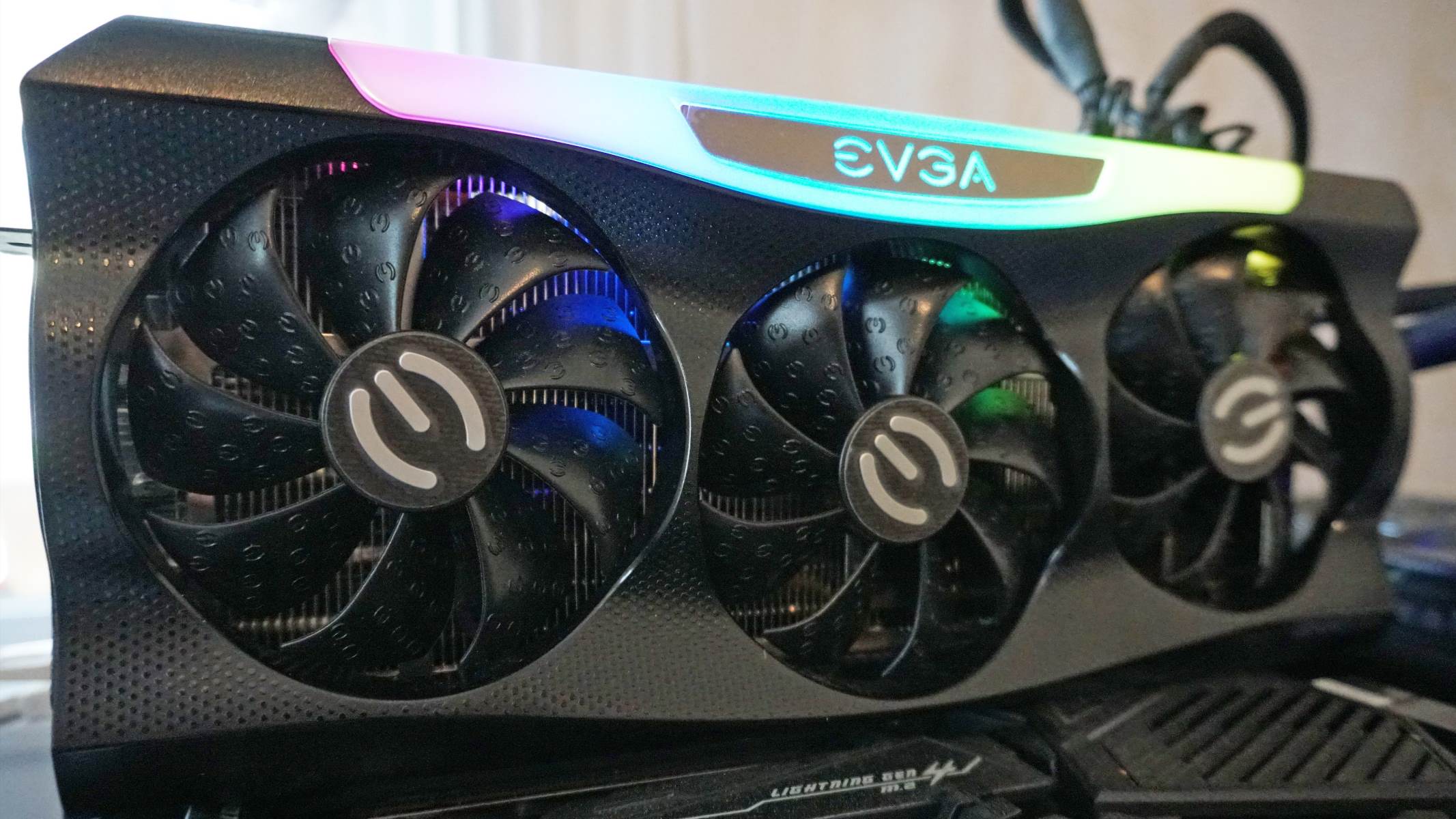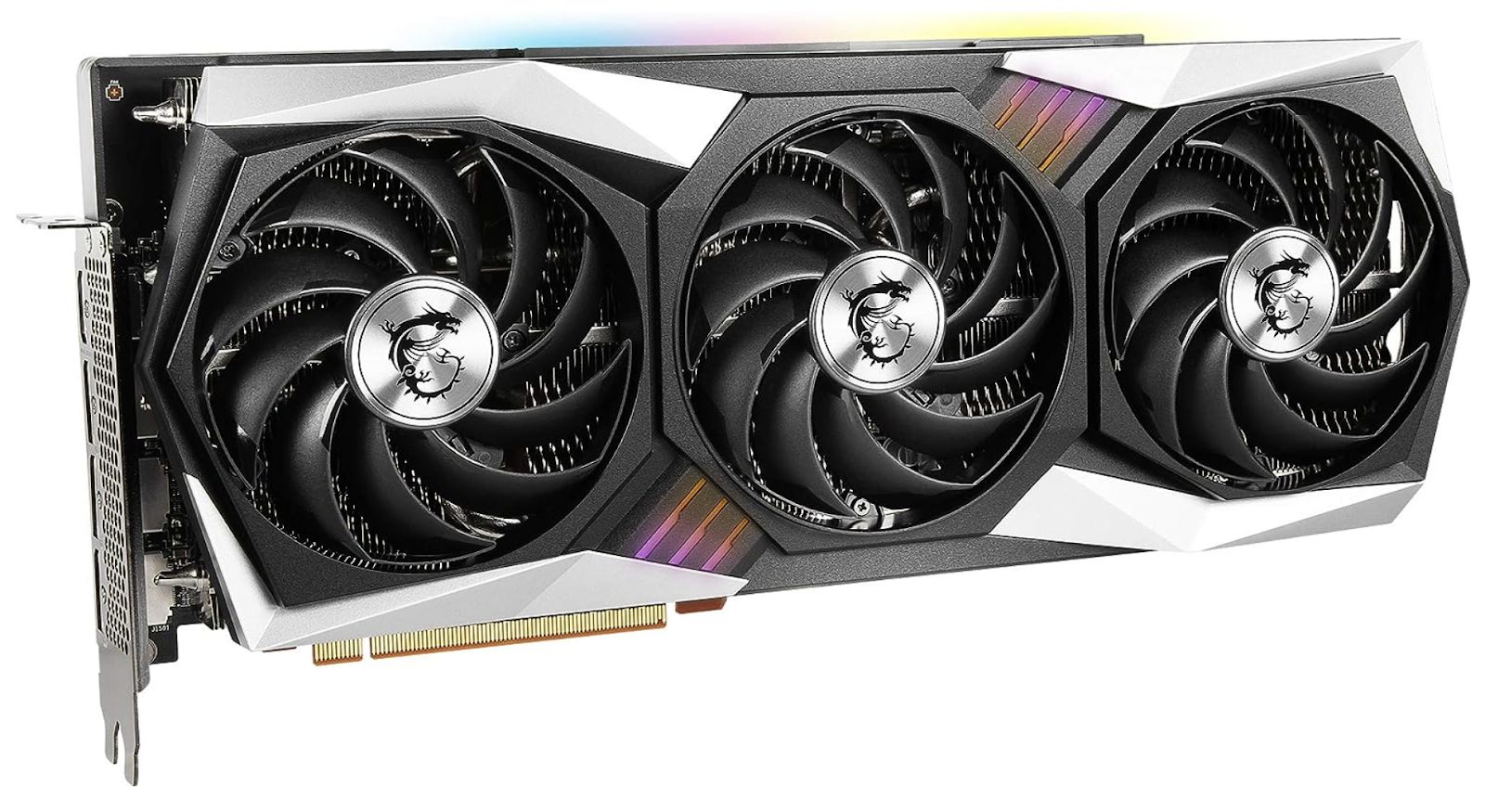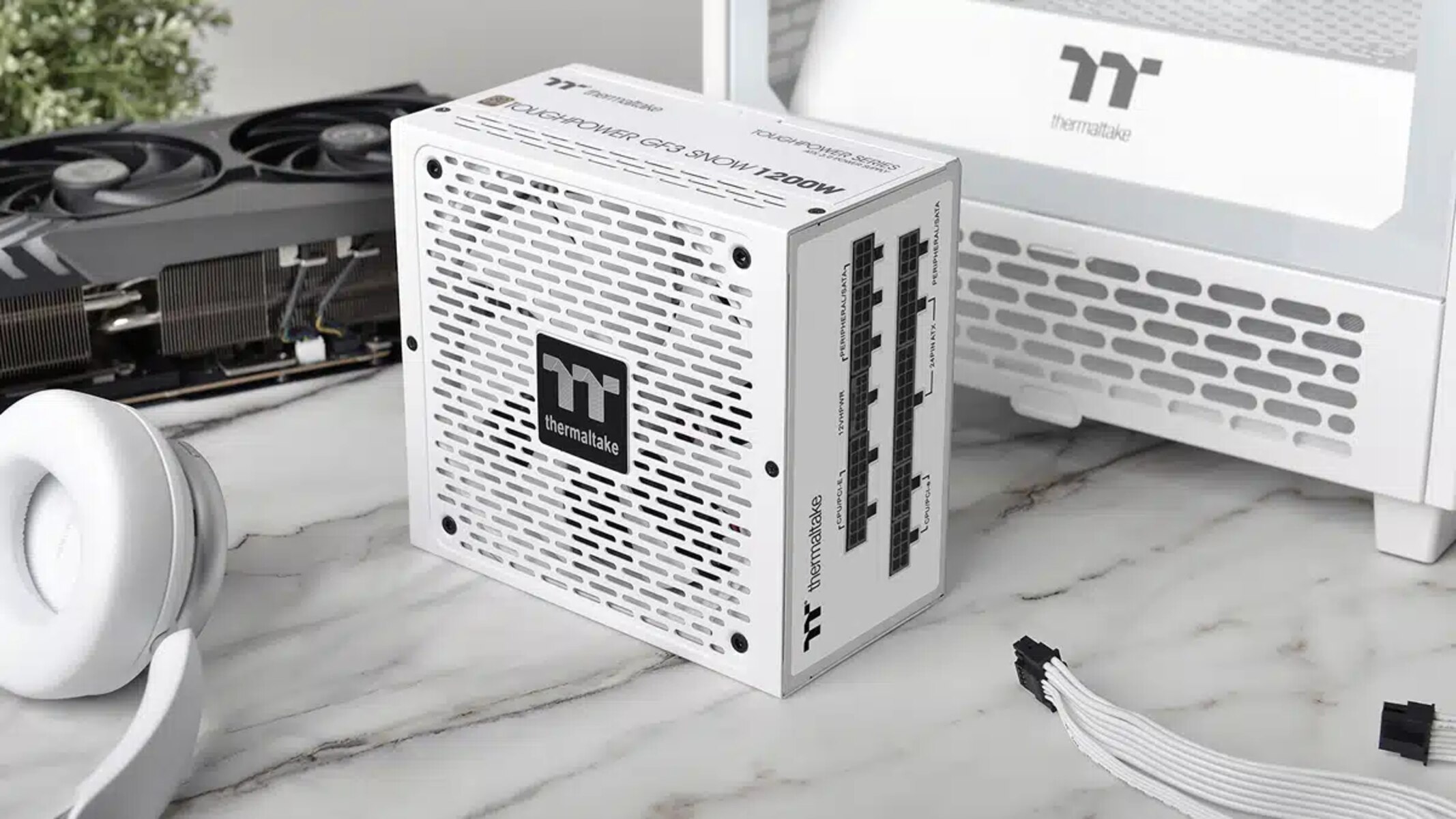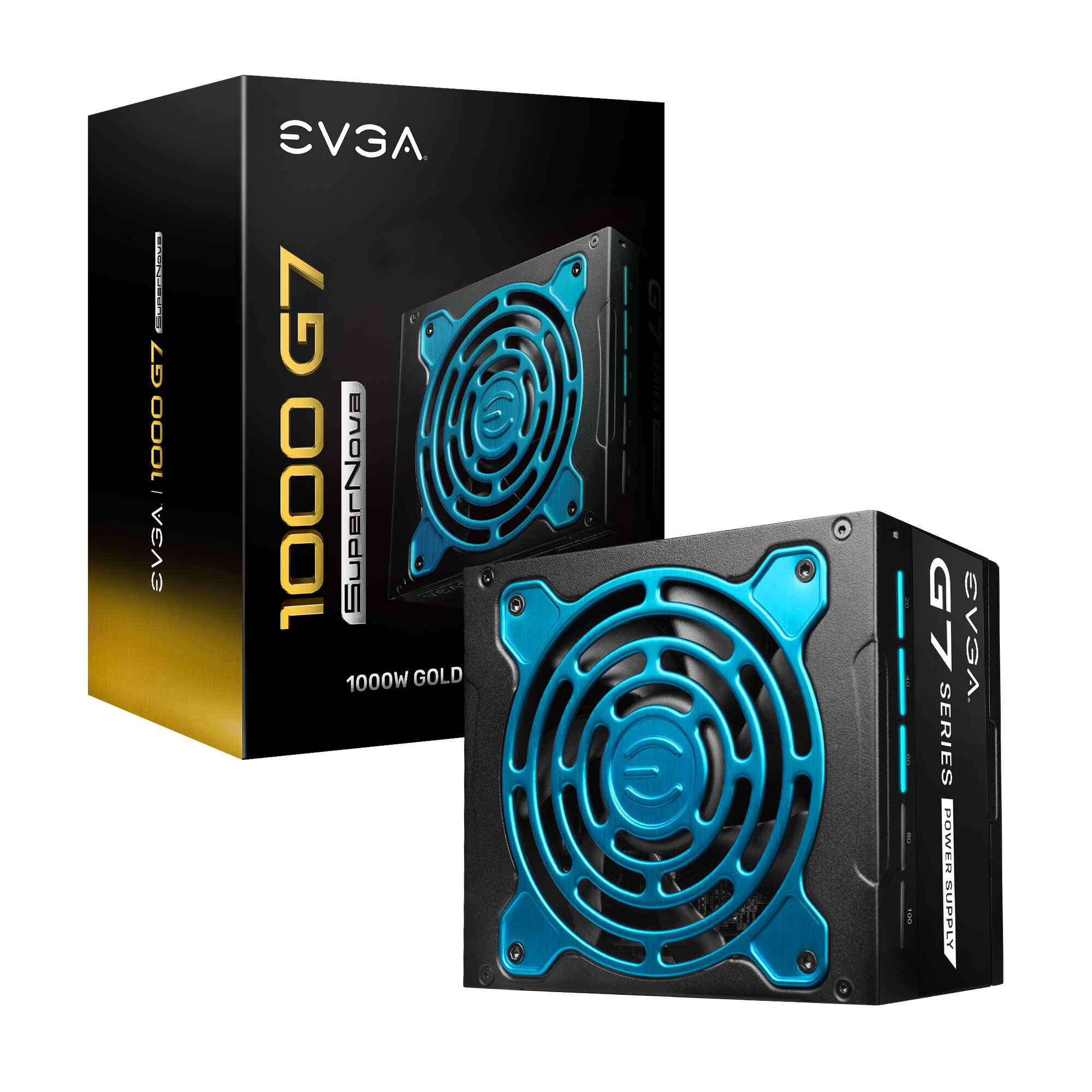Introduction
The RTX 2080 – an impressive graphics card designed for gamers and creative professionals alike. With its powerful performance and cutting-edge features, it has become the go-to choice for those seeking a truly immersive and visually stunning experience. However, to harness the full potential of this graphics card, it is essential to pair it with a suitable power supply unit (PSU).
Choosing the right PSU for your RTX 2080 can be a daunting task, as there are several factors to consider. The PSU not only provides the necessary power to your components but also ensures their stability and longevity. A proper power supply is crucial for the overall performance and reliability of your system.
In this article, we’ll explore the key considerations when selecting a PSU for the RTX 2080. We’ll delve into the power requirements of the graphics card, discuss wattage recommendations, examine the importance of efficiency and certification levels, and explore the differences between modular and non-modular PSUs. Additionally, we’ll touch upon PSU form factors and compatibility with the RTX 2080, as well as highlight some reputable PSU brands to consider.
By understanding the power needs and recommended specifications of the RTX 2080, you can make an informed decision when purchasing a PSU, ensuring optimal performance and stability for your system. So let’s dive in and equip ourselves with the knowledge needed to choose the perfect PSU for your RTX 2080.
Power Requirements of the RTX 2080
Before investing in a PSU for your RTX 2080, it’s vital to understand the power requirements of this high-performance graphics card. The power consumption of the RTX 2080 can vary depending on several factors, including clock speed, workload intensity, and system configuration.
On average, the RTX 2080 has a maximum power draw of around 215 watts under typical gaming conditions. However, it’s important to note that the power consumption can spike significantly during demanding tasks or when overclocking. To ensure stability and avoid any potential issues, it’s advisable to choose a PSU that can comfortably handle the peak power demands of the RTX 2080.
Most manufacturers recommend a minimum PSU wattage of 600 to 650 watts for systems using the RTX 2080. This provides sufficient headroom for the graphics card and other components to operate smoothly. However, it’s always a good idea to opt for a higher wattage PSU, especially if you plan on adding additional components or overclocking your system in the future.
Another important aspect to consider is the power connectors required by the RTX 2080. This graphics card typically requires one 8-pin and one 6-pin power connector for proper operation. Therefore, ensure that your chosen PSU has the necessary connectors to accommodate the RTX 2080’s power requirements.
It’s worth mentioning that some aftermarket versions of the RTX 2080 may come with additional power options, such as dual 8-pin connectors or even triple 8-pin connectors. Be sure to check the specifications of your specific model to determine its power requirements and choose a PSU accordingly.
Considering the power requirements of the RTX 2080 is crucial when selecting a suitable PSU. By opting for a PSU with ample wattage and the necessary power connectors, you can ensure stable and reliable performance from your graphics card without any power-related issues.
Factors to Consider when Choosing a PSU for the RTX 2080
Selecting the right power supply unit (PSU) for your RTX 2080 involves considering several key factors. These factors will ensure that your PSU can provide sufficient power, stability, and efficiency for your graphics card and system as a whole.
1. Wattage: The wattage rating of the PSU is crucial. As mentioned earlier, the recommended minimum wattage for a system with an RTX 2080 is around 600 to 650 watts. However, it’s advisable to choose a higher wattage PSU to allow for any future upgrades or overclocking. This ensures that your PSU can handle spikes in power demand without issues.
2. Power Efficiency: Look for a PSU with a high efficiency rating, ideally 80 PLUS certified or higher. An efficient PSU minimizes power wastage and reduces heat output, resulting in lower energy costs and a longer lifespan for your components.
3. Modularity: Consider whether you prefer a modular or non-modular PSU. Modularity allows you to connect only the cables you need, reducing cable clutter inside your case and improving airflow. Non-modular PSUs include all the cables attached, which can be less visually appealing but may be more cost-effective.
4. Brand and Reputation: Opt for reputable PSU brands known for their quality and reliability. Brands such as Corsair, EVGA, Seasonic, and Thermaltake are widely recognized for their PSU offerings. Reading reviews and user feedback can also help you gauge the reliability of a specific PSU model.
5. Connectors and Cable Length: Ensure that the PSU has the necessary connectors to accommodate the power requirements of your RTX 2080, as well as other peripherals in your system. Consider the length of the cables as well, especially if you have a larger PC case.
6. Noise Levels: Consider the noise output of the PSU. Look for PSUs with a quiet fan or fanless operation when the system is under light load. A quieter PSU can contribute to a more pleasant computing experience.
7. Budget: Set a budget for your PSU but also keep in mind that investing in a high-quality PSU can lead to better performance, stability, and longevity for your system. Avoid opting for the cheapest PSU available, as it may compromise on quality and reliability.
By considering these factors when choosing a PSU for the RTX 2080, you can ensure that your graphics card and system receive the necessary power and stability for optimal performance. Take the time to research and compare different PSU models to find the one that best meets your requirements and budget.
Wattage Recommendations for the RTX 2080
When selecting a power supply unit (PSU) for your RTX 2080, it is crucial to consider the wattage rating. The wattage directly correlates to the PSU’s capacity to deliver power to your graphics card and other components. Choosing the appropriate wattage ensures a stable and reliable power supply, which is essential for the optimal performance of the RTX 2080.
Most manufacturers recommend a minimum PSU wattage of 600 to 650 watts for systems utilizing the RTX 2080. This wattage covers the power requirements of the graphics card, as well as other components such as the CPU, motherboard, drives, and peripherals. However, it is advisable to choose a PSU with higher wattage to allow for headroom and accommodate any future upgrades or overclocking.
The actual power consumption of the RTX 2080 can vary depending on various factors, including workload intensity, clock speed, and system configuration. Under typical gaming conditions, the RTX 2080 has a maximum power draw of around 215 watts. However, during demanding tasks or when overclocking, the power consumption can significantly increase.
By selecting a PSU with higher wattage, such as 750 watts or even 850 watts, you provide ample headroom for the RTX 2080’s power demands. This ensures that the PSU runs efficiently and minimizes the risk of power-related issues, such as system instability or crashes.
Additionally, opting for a higher wattage PSU can future-proof your system, allowing for the addition of more power-hungry components, such as multiple graphics cards, additional storage drives, or upgraded CPUs. It also accommodates any potential increases in power requirements in newer generations of graphics cards.
It’s important to note that the recommended wattage may vary depending on the specific configuration of your system. For example, if you have multiple high-power graphics cards or run resource-intensive applications, you will require a higher wattage PSU to meet the increased power demands.
Ultimately, to ensure the stability and optimal performance of your RTX 2080, it’s advisable to choose a PSU with a wattage rating that surpasses the bare minimum requirements. A higher wattage PSU not only caters to the power demands of your graphics card but also provides headroom for future upgrades and helps maintain system stability under intense workloads.
Efficiency and Certification Levels for PSUs
When choosing a power supply unit (PSU) for your RTX 2080, considering its efficiency and certification level is crucial. The efficiency of a PSU determines how effectively it converts AC power from the electrical outlet into the DC power needed by your components. A higher efficiency PSU not only reduces energy consumption but also helps in maintaining stable and reliable power delivery to your RTX 2080.
Efficiency is often expressed as a percentage and is commonly associated with certification levels such as 80 PLUS certification. The 80 PLUS certification program, developed for PSUs, measures and categorizes their efficiency. The certifications range from 80 PLUS (standard) to 80 PLUS Titanium (highest efficiency).
Choosing a PSU with a higher efficiency rating ensures that less power is wasted as heat. This not only reduces your energy bills but also results in cooler operation, contributing to longevity and better performance for your components.
Here are the different 80 PLUS certification levels:
- 80 PLUS: This certification indicates that the PSU is at least 80% efficient at 20%, 50%, and 100% of its rated load.
- 80 PLUS Bronze: These PSUs provide 82% efficiency at 20% load, 85% efficiency at 50% load, and 82% efficiency at 100% load.
- 80 PLUS Silver: This certification guarantees 85% efficiency at 20% load, 88% efficiency at 50% load, and 85% efficiency at 100% load.
- 80 PLUS Gold: These PSUs offer 87% efficiency at 20% load, 90% efficiency at 50% load, and 87% efficiency at 100% load.
- 80 PLUS Platinum: This certification ensures 90% efficiency at 20% load, 92% efficiency at 50% load, and 89% efficiency at 100% load.
- 80 PLUS Titanium: These PSUs provide the highest efficiency, with 90% efficiency at 20% load, 94% efficiency at 50% load, and 90% efficiency at 100% load.
While a PSU with higher efficiency may come at a higher price, it can save you money in the long run due to reduced energy consumption. Additionally, a higher efficiency PSU typically includes better components and features, contributing to its overall reliability and performance.
When choosing a PSU for your RTX 2080, prioritize options with at least an 80 PLUS Bronze certification. This ensures a good balance between energy efficiency and affordability. However, if you can afford it, consider investing in a PSU with a higher certification level, such as 80 PLUS Gold or Platinum, to reap the benefits of increased efficiency and better overall performance.
Modular or Non-Modular PSUs: Which one to Choose?
When selecting a power supply unit (PSU) for your RTX 2080, one important consideration is whether to choose a modular or non-modular PSU. Both options have their advantages and disadvantages, and understanding the differences will help you make an informed decision.
Modular PSUs: Modular PSUs provide flexibility and convenience when it comes to cable management. These PSUs have detachable cables, allowing you to connect only the cables you need for your specific system configuration. This results in a cleaner and more organized build, as unused cables do not clutter the interior of your PC case.
With a modular PSU, you have the freedom to choose the specific cables required for your components, such as the RTX 2080, CPU, motherboard, and storage devices. This customization prevents unnecessary cables from obstructing airflow and potentially affecting system cooling. Additionally, a modular PSU makes it easier to upgrade or replace cables if needed.
The main drawback of modular PSUs is cost. They are generally more expensive than their non-modular counterparts due to the added convenience and versatility they offer. However, the benefits of improved cable management and airflow can outweigh the additional cost for many users.
Non-Modular PSUs: Non-modular PSUs, as the name suggests, come with all the cables permanently attached. While this design may result in a less clean and organized build, non-modular PSUs are usually more cost-effective compared to modular ones. They are a popular choice for those on a tighter budget.
Non-modular PSUs are suitable for users who don’t mind the additional cables and are confident in their system configuration, as they won’t need to swap or add cables frequently. However, it’s important to properly manage and route the cables for efficient airflow and cooling to prevent any potential issues.
Ultimately, the choice between a modular and non-modular PSU for your RTX 2080 depends on your budget, cable management preferences, and future expansion plans. If you prioritize flexibility, ease of cable management, and a cleaner build, a modular PSU is a wise investment. On the other hand, if budget constraints are a concern and you are comfortable managing the additional cables, a non-modular PSU can be a more affordable choice without sacrificing performance.
Regardless of your decision, ensure that the PSU you choose meets the wattage requirements and has the necessary connectors to power your RTX 2080 and other components in your system. Proper cable management, regardless of whether you choose a modular or non-modular PSU, will contribute to improved airflow and overall system stability.
PSU Form Factors and Compatibility with the RTX 2080
When selecting a power supply unit (PSU) for your RTX 2080, it’s important to consider its form factor and compatibility with your system. The form factor refers to the physical dimensions and design of the PSU, which determine whether it can fit properly in your PC case.
The most common form factors for PSUs are ATX (Advanced Technology eXtended) and SFX (Small Form Factor). The ATX form factor is the standard size for most desktop PCs, while the SFX form factor is typically used in compact or mini-ITX cases.
For most standard ATX cases, an ATX-sized PSU will be compatible with the RTX 2080. These PSUs offer ample power capacity and are widely available from various manufacturers. However, if you have a smaller PC case or are building a compact system, you may need to consider an SFX PSU. These smaller PSUs are designed to fit into tight spaces, making them suitable for mini-ITX builds.
When choosing a PSU form factor, also consider the power requirements of your RTX 2080. Ensure that the chosen PSU can provide enough wattage for the graphics card and other components in your system. Additionally, check the PSU’s dimensions and any clearance restrictions in your PC case to ensure a proper fit without obstructing other components.
Another factor to consider is the PSU’s cable lengths. ATX and SFX PSUs come with different cable lengths, and it’s important to ensure that the PSU’s cables are long enough to reach your components, particularly the RTX 2080. Measure the distance from the PSU mounting point to your graphics card and other components to ensure compatibility.
It’s worth noting that some high-end versions of the RTX 2080, such as those with custom or triple-fan cooling solutions, may have larger physical dimensions. Before selecting a PSU, check the clearance inside your PC case to ensure that there is enough space to accommodate both the graphics card and the PSU.
Lastly, consider the PSU’s cooling capabilities. PSUs come with various cooling designs, including a fan or fanless operation. A PSU with an efficient cooling system will help maintain stable temperatures and prevent overheating in your system, especially when under heavy load.
By considering the form factor, dimensions, cable lengths, and cooling capabilities of the PSU, you can ensure its compatibility with the RTX 2080 and the overall compatibility with your PC case. Careful consideration of these factors will help you choose a PSU that fits properly, provides ample power, and contributes to the stable and reliable performance of your RTX 2080 and other components.
Choosing the Right PSU Brand for the RTX 2080
When selecting a power supply unit (PSU) for your RTX 2080, it’s essential to choose a reputable brand known for producing high-quality and reliable PSUs. The PSU is a critical component of your system, and a reliable brand ensures stable power delivery to your graphics card and other components.
Here are some well-known PSU brands to consider when choosing a PSU for your RTX 2080:
1. Corsair: Corsair is a widely recognized brand in the PC gaming community. They offer a range of PSUs known for their reliability, performance, and excellent build quality. Corsair PSUs are often recommended for their stability and longevity.
2. EVGA: EVGA is another reputable brand known for its top-quality PSUs. They offer a variety of options with different wattage ratings, efficiency levels, and form factors. EVGA PSUs are highly regarded for their performance and customer support.
3. Seasonic: Seasonic is a renowned PSU manufacturer known for its focus on efficiency and reliability. They produce PSUs that meet strict standards and are highly efficient. Seasonic PSUs are known for their durability and stable power delivery.
4. Thermaltake: Thermaltake is a respected brand that offers a wide range of PSUs suitable for various system configurations. They provide reliable power supplies with different features, including modular designs and optimized cooling solutions.
5. be quiet!: be quiet! is known for manufacturing PSUs with a strong emphasis on silent operation. Their power supplies often incorporate high-quality components and efficient designs. be quiet! PSUs are popular among users who prioritize a quiet and efficient computing experience.
These are just a few examples of reputable PSU brands in the market, but there are several other reliable options available. It’s important to conduct thorough research, read reviews, and consider customer feedback to select the best PSU brand for your specific needs.
When choosing a PSU brand, also consider factors such as warranty coverage, customer support, and overall reputation. A brand that offers excellent after-sales support and has a track record of reliability can provide peace of mind and assistance in case of any issues.
Lastly, consult the PSU compatibility list provided by the manufacturer of your RTX 2080. This list specifies PSUs that have been tested and confirmed to work well with the graphics card. Following the manufacturer’s recommendations can help ensure seamless compatibility and optimal performance.
By choosing a trusted PSU brand, you can have confidence that your RTX 2080 and the rest of your components will receive reliable and stable power, contributing to the overall performance and longevity of your system.
Conclusion
Choosing the right power supply unit (PSU) for your RTX 2080 is an essential step in building a stable and high-performance gaming or creative system. By considering various factors such as power requirements, efficiency, form factor, and brand reputation, you can make an informed decision that ensures optimal power delivery and system reliability.
Understanding the power requirements of the RTX 2080 and selecting a PSU with sufficient wattage is crucial. Opting for a PSU with higher wattage provides headroom for potential upgrades and ensures stability under demanding workloads or overclocking scenarios.
Efficiency and certification levels should be considered, with higher certifications like 80 PLUS Gold or Platinum offering greater energy efficiency and ultimately reducing power wastage. This not only benefits the environment but also your energy bills and overall system longevity.
The choice between modular and non-modular PSUs depends on your preference for cable management and budget. Modular PSUs provide flexibility and a cleaner build, while non-modular PSUs are more cost-effective for those on a tighter budget.
Considering the PSU form factor and ensuring compatibility with your RTX 2080 and PC case is important. Choosing a reputable PSU brand like Corsair, EVGA, Seasonic, Thermaltake, or be quiet! assures quality and reliability, along with excellent customer support.
In conclusion, selecting the right PSU for your RTX 2080 involves evaluating various factors and finding a balance between performance, compatibility, and budget. By making an informed decision, you can ensure stable power delivery, efficient operation, and the longevity of your system, all while enjoying the incredible performance capabilities of the RTX 2080.

























